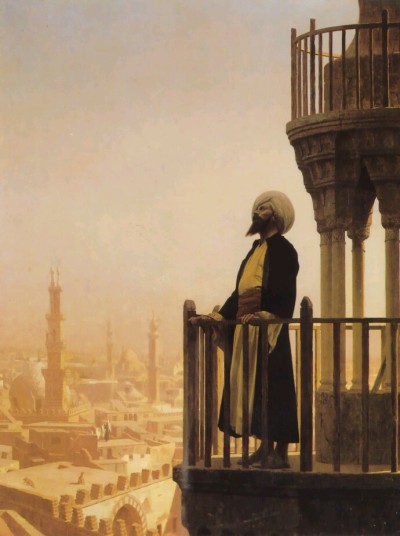 The Prophetic wisdom of not giving azaan (call to prayer). One of the Imams gave the simple answer to that but definitely the most important reason for Prophet Muhammad ﷺ not giving the azaan is because if Muslims would not appear in masjid for salaah after hearing it from the Prophet ﷺ, they would get more sin as compared to someone else’s call. Rejecting the call of the Prophet ﷺ has greater implications for individuals as compared to rejecting anyone else’s. Apart from this great wisdom there are other reasons why he did not. The call to Islam was the actual call that Prophet Muhammad ﷺ was busy with every moment of his life. The responsibilities included within the call to Islam are extensive therefore he focused on them and assigned the azaan to his companions. Secondly during the azaan there are certain words that are required to be uttered simultaneously with the muezzin’s (caller’s) wording and also there are duas (invocations) need to be recited after the completion of azaan. These needed to be taught to people who constantly observed and watched the Prophet ﷺ for the sake of learning so that they could teach others. Thirdly, the Prophet ﷺ had a soft and humble voice and in order for the voice of azaan to reach far and wide, a companion like Bilal, the Abyssinian, was the best choice whose voice was deep and echoing. That is why we have a prophetic hadith from him that: “Azaan is among the Ethiopians (Abyssinians).”[1] Obviously now we have loud speakers that do that job but in the past a person with a heavy voice was certainly preferred and would still be preferred in the absence of such technology. Fourthly, in masjids the role of muezzin (the caller) is separate from the pesh Imam (prayer leaders). Just as how the Prophet ﷺ led the prayers himself and not give azaan so to distinguish for us the position between the two. Fifthly, it is not all true that he never gave any sort of azaan. At the birth of a Muslim child an azaan is to be given in the child’s ear but in a very low voice. The Prophet ﷺ gave azaan in Imam Hassan’s[2] ear when he was born. References: [1] Jami Tirmidhi - Vol. 1, Book 46, Hadith 3936 – Sunnah.com [2] The eldest and first born son of Prophet’s daughter Fatima (r.a) from her only marriage with Ali (r.a), prophet’s dearest cousin and son in law.
1 Comment
Amil
9/7/2021 02:49:50 am
Subhanallah
Reply
Leave a Reply. |
AuthorZaid Shaw Archives
September 2019
Categories |
Proudly powered by Weebly
 RSS Feed
RSS Feed